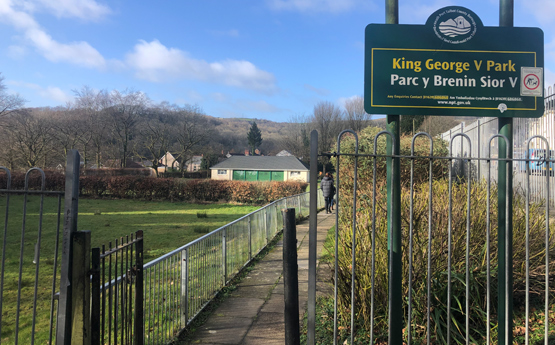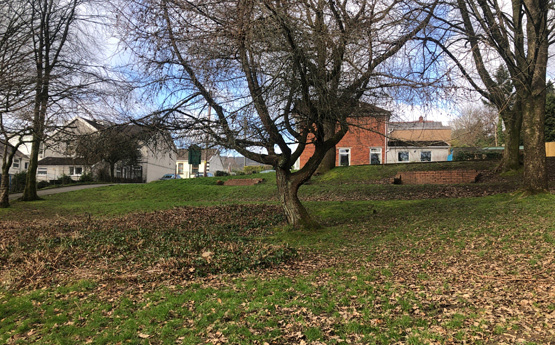Stakeholder Engagement
Through community engagement activities and stakeholder focus groups, the project has used a participatory approach to uncover how residents and organisations use and interact with local GI.
Community input (via questionnaire) and modelling outputs have contributed to plans in King George V Park, Pontardawe, to make access and biodiversity improvements based on both users’ and ecological priorities. In addition to path improvements to improve the accessibility of the park, the project is funding installation of biodiversity interpretation panels, wildflowers, a wooden carved bench, bat boxes and bird boxes. The latter were painted by local children in a community engagement workshop designed to foster environmental stewardship and boost awareness of the benefits of GI.
On 23rd June 2022, the project held a land management stakeholder workshop at Swansea University Bay Campus, with approximately 40 stakeholders from sectors including academia, local government and the third sector, and representatives from national and local organisations. This event was designed to build on the previous stakeholder engagement and bring a diverse group of stakeholders together, to consolidate the work carried out thus far and identify gaps for further research.
Stakeholders had a wide range of experiences and knowledge (or lack thereof) of green infrastructure, and it emerged that projects should define GI as broadly as possible, to be inclusive of many different meanings or situations. A wide variety of GI examples and projects currently exist within Neath Port Talbot – stakeholders identified 114 unique projects in the county. The key knowledge gaps or priority issues, however, were associated with (1) access to nature, especially via public transport and for the disabled or disadvantaged, (2) governance and biodiversity management, and (3) communication.
Stakeholders came together to brainstorm short-, medium and long-term actionable ideas that could be put into practice to address the identified priority issues. These included engaging the public sector and general public through better access to nature in terms of safety, amenities and cost, improving inter-agency communication, and helping/encouraging private sector companies to meet their ESG (Environmental, Social and Governance) responsibilities.
Park Improvements
King George V Park, Pontardawe, was identified as an urban park to focus our improvement works, following survey and stakeholder review. We implemented an EDD (Engage-Deliberate-Decide) approach, consulting with the community prior to deciding on the improvements to ensure we considered the socio-cultural, as well as ecological, needs of the area. Consultation here involved (1) an online questionnaire (2) a bird box painting community engagement event and (3) meetings and focus groups with residents interested in setting up a Friends of King George V Park group. Improvement works are ongoing, and will consist of path improvements, biodiversity interpretation panels, wildflower planting, a wooden carved bench, and installation of bird and bat boxes.



